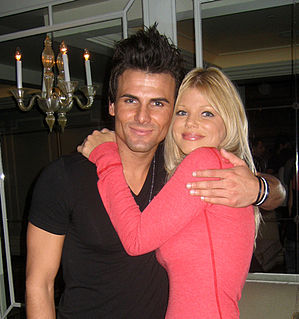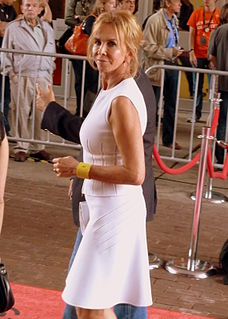A Quote by Yehuda Berg
Kabbalah is all about change. It isn't about being proud of our good qualities: the wisdom is about transforming our darkness into light.
Quote Topics
Related Quotes
We need a sense of the oneness of the 7 billion human beings alive today. When I meet people, I don't think about being different from them, about being Tibetan, Buddhist or even the Dalai Lama. I only think about being a human being. We all share the potential for positive and negative emotions, yet one of our special qualities is our human mind, our intelligence. If we use it well we'll be successful and happy.
Of all the things we are wrong about, error might well top the list ... We are wrong about what it means to be wrong. Far from being a sign of intellectual inferiority, the capacity to err is crucial to human cognition. Far from being a moral flaw, it is inextricable from some of our most humane and honourable qualities: empathy, optimism, imagination, conviction, and courage. And far from being a mark of indifference or intolerance, wrongness is a vital part of how we learn and change. Thanks to error, we can revise our understanding of ourselves and amend our ideas about the world.
What do we mean by the word 'wisdom'? Usually we mean something superior to knowledge, something deeper. In the spiritual world, the word 'wisdom' is not used in that way. Here wisdom means Light, illumining Light, transforming Light. That which illumines our unlit consciousness is wisdom. That which transforms the finite consciousness into the infinite Consciousness is called wisdom.
We all like to think the world ends when we do. The truth is our acquaintances, our friends, and our loved ones all live on, and through them, so do we. It's not about what you had, but what you gave. It's not about how you looked, but how you lived. And it's not just about being remembered. It's about giving people a good reason to remember you.
To disguise nothing, to conceal nothing, to write about those things that are closest to our pain, our happiness; to write about our sexual clumsiness, the agonies of Tantalus, the depth of our discouragement-what we glimpse in our dreams-our despair. To write about the foolish agonies of anxiety, the refreshment of our strength when these are ended; to write about our painful search for self, jeopardized by a stranger in the post office, a half-seen face in a train window, to write about the continents and populations of our dreams, about love and death, good and evil, the end of the world.
We women, we're always being invited to change our hairstyle, change our clothes, change our wardrobes. It's also important for us to remember as we age to keep changing the way we think of the world. I'm not saying to be flaky at all; but rather than being rigid about something, stay open and available.
Being told about the effects of climate change is an appeal to our reason and to our desire to bring about change. But to see that Africans are the hardest hit by climate change, even though they generate almost no greenhouse gas, is a glaring injustice, which also triggers anger and outrage over those who seek to ignore it.
I think the Bhagavad Gita is about both the forces of light and the forces of darkness that exist within our own self, within our own soul; that our deepest nature is one of ambiguity. We have evolutionary forces there - forces of creativity, and love, and compassion, and understanding. But we also have darkness inside us - the diabolical forces of separation, fear and delusion. And in most of our lives, there is a battle going on within ourselves.
Men's and nations' finest hour consist of those moments when extraordinary challenge is met by extraordinary response. Hence in those darkest hours, we must light our individual candles rather than vying with others to call attention to the enveloping darkness. Our indignation about injustice should lead to illumination, for if it does not, we are only adding to the despair-and the moment of gravest danger is when there is so little light that darkness seems normal!
In order to function and pay our bills and our taxes and feed our families and stuff, musicians have to make a living. It's not about being a millionaire. It's about being able to survive. When there are people constantly stealing from you, it's quite frustrating. It's a matter of changing the public's option about doing it.
There's so many problems in our world, so much negativity. Don't worry about the darkness - turn on the light and the darkness automatically goes. Ramp up the light of unity within - help do that for yourself, help do that for the world and then we're really doing something, we're doing something that brings that light of unity.






































